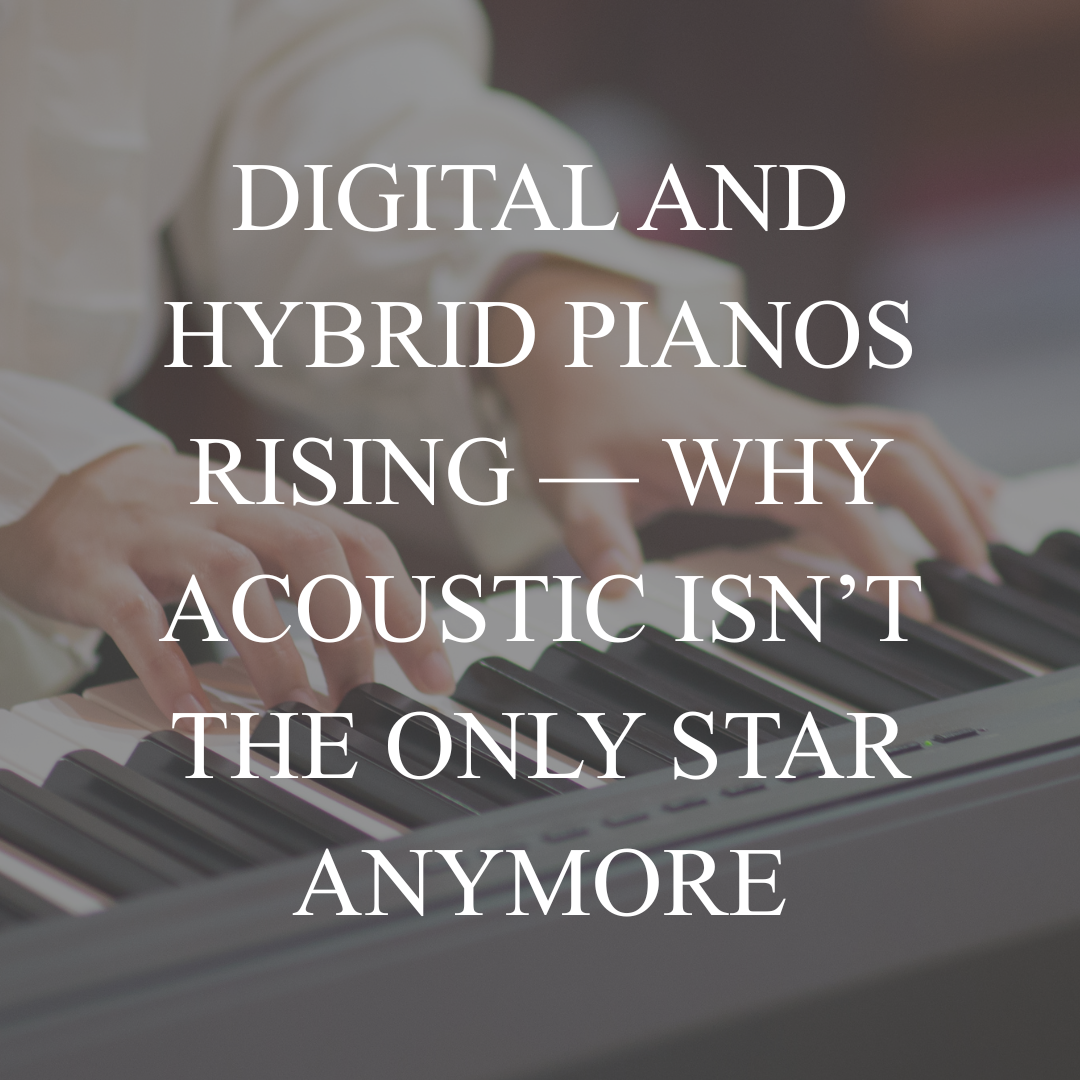
Over the last few years, acoustic pianos have held the prestige. But the tide is shifting. More musicians, educators, and beginners are turning to digital and hybrid models for their flexibility, technological perks, and lower maintenance demands. According to industry reports, the global piano market is now incorporating “smart integration” and “compact designs” as key drivers for growth. The Business Research Company+2PR Newswire+2
While acoustic pianos still win in tone and presence, digital/hybrid pianos offer things acoustic simply can’t: silent modes, headphone practice, MIDI connectivity, and built-in effects. For homes with noise concerns or tight budgets on space, these features are hard to ignore.
At Northwest Pianos, we’ve noticed that many customers who begin with a digital instrument eventually return to acoustic models — but the reverse is increasingly common too: acoustic owners looking for a companion keyboard or secondary instrument with modern features. We’re scaling up our hybrid inventory and training staff to help customers find the right balance between tradition and innovation.
Comments will be approved before showing up.

Sound quality matters, but how a piano feels matters just as much. Key weight, action responsiveness, and balance across the keyboard all influence whether players enjoy sitting down to practice.

A piano is not a short-term purchase. Unlike many instruments that are replaced or upgraded frequently, a piano is designed to remain in use for decades. This makes ownership a long-term relationship rather than a transaction.

First-time piano buyers often feel pressure to make a “perfect” decision. Brand names, online opinions, and price ranges can quickly complicate what should be an exciting step.